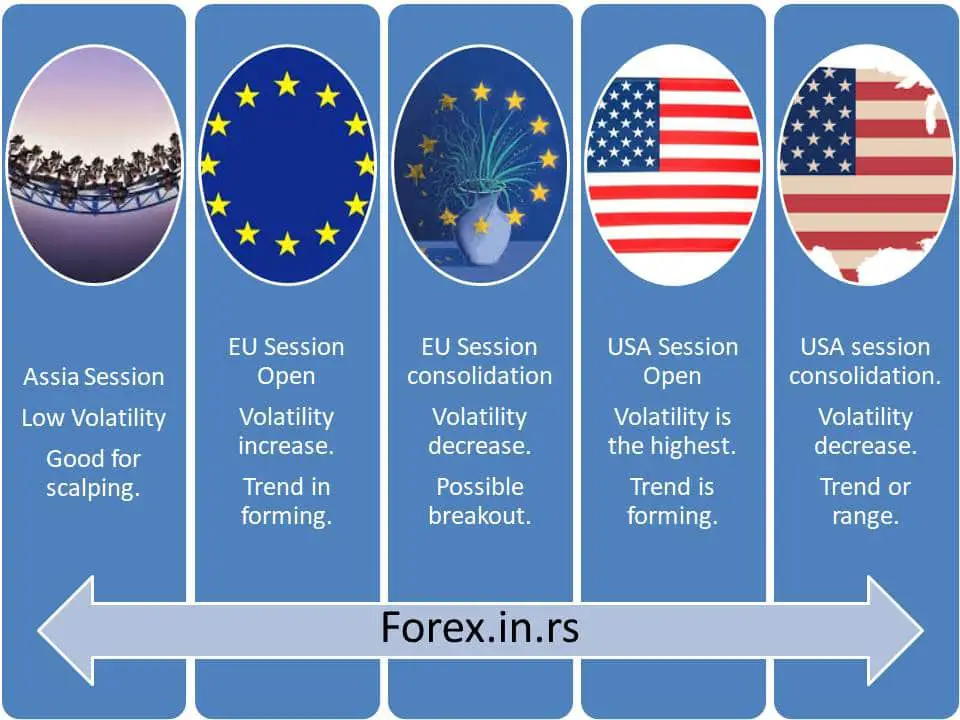The European stock market comprises a dynamic and diverse network of exchanges, each serving as a vital hub for financial transactions across the continent and beyond. From the historic London Stock Exchange to the technologically advanced Euronext, spanning multiple European countries, these markets collectively host thousands of companies ranging from industrial giants to innovative tech firms.
In recent articles, we covered European stock market open and close times, US market open and close, and Asian market open and close. Additionally, we presented S&P 500 trading hours, best forex sessions, when the forex market opens, and where the forex market closes on Friday. Finally, we explained when the stock market is open on Saturdays and when it is open on Sundays.
Trading hours across these exchanges are carefully timed to maximize overlap with global markets, facilitating seamless international investment and liquidity flows. The variation in opening and closing times reflects the geographical spread and time zone differences within Europe, ensuring accessibility for traders worldwide. As a cornerstone of the global financial system, the European stock market plays a crucial role in the region’s economic development, influencing investment strategies, corporate finance, and economic policy at both the domestic and international levels.

What time do European markets open?
European stock markets generally open at different times depending on location and time zone. For instance, the London Stock Exchange opens at 8:00 a.m. BST, while markets in the Central European Summer Time (CEST) zone, such as the Frankfurt Stock Exchange and Euronext Amsterdam, open an hour later at 9:00 a.m. CEST.
The opening times of European stock markets cover a span that reflects the continent’s geographic and time zone diversity, starting with the London Stock Exchange (LSE) at 8:00 a.m. British Summer Time (BST). Shortly after, markets in Central European Summer Time (CEST) zones, including major financial centers like Frankfurt, Amsterdam, Zurich, and Stockholm, commence trading at 9:00 a.m. CEST.
This staggered start facilitates a smooth transition of trading activity from Asia, maintaining global market liquidity and allowing for the assimilation of overnight news and events. The one-hour difference between the UK and most continental European exchanges enables a brief but crucial overlap, during which market participants can engage in cross-market trades and strategies based on early market signals from the LSE. Consequently, this opening period across European markets plays a vital role in shaping the daily rhythm of global finance, affecting everything from liquidity to the execution of international trading strategies.
What time do European markets close?
European stock markets close at varying times, primarily in the late afternoon within their respective time zones. For example, the London Stock Exchange closes at 4:30 p.m. BST, while markets operating in Central European Summer Time (CEST), like the Frankfurt Stock Exchange and Euronext Amsterdam, close between 5:20 p.m. and 5:30 p.m. CEST.
The closing times of European stock markets are carefully coordinated to reflect local business hours and the needs of the global trading community, ending the trading day in the late afternoon across different time zones. In the UK, the London Stock Exchange (LSE) concludes its trading activities at 4:30 p.m. BST, setting the stage for the closure of European markets.
Following the LSE, markets in the Central European Summer Time (CEST) zone, including prominent exchanges like the Frankfurt Stock Exchange and Euronext Amsterdam, wrap up their trading day an hour later, with closing times typically between 5:20 p.m. and 5:30 p.m. CEST. This timing allows for an overlap with the early trading hours of the North American markets, facilitating a smooth transition of liquidity and enabling continuous global trading. The staggered closing times across Europe thus not only accommodate local trading patterns but play a critical role in the interconnected nature of global finance, ensuring that investors and traders have access to European markets for as long as possible while balancing international market interactions.
- London Stock Exchange (London, United Kingdom)
- Time zone: BST (GMT+1)
- Trading hours: 8:00 a.m. to 12:00 p.m. and 12:02 p.m. to 4:30 p.m.
- Lunch break: 12:00 p.m. to 12:02 p.m.
- Frankfurt Stock Exchange (Frankfurt, Germany)
- Time zone: CEST (GMT+2)
- Trading hours: 9:00 a.m. to 5:30 p.m.
- Lunch break: No
- SIX Swiss Exchange (Zurich, Switzerland)
- Time zone: CEST (GMT+2)
- Trading hours: 9:00 a.m. to 5:20 p.m.
- Lunch break: No
- Euronext Amsterdam (Amsterdam, Netherlands)
- Time zone: CEST (GMT+2)
- Trading hours: 9:00 a.m. to 5:30 p.m.
- Lunch break: No
- Nasdaq Stockholm AB (Stockholm, Sweden)
- Time zone: CEST (GMT+2)
- Trading hours: 9:00 a.m. to 5:25 p.m.
- Lunch break: No
Exploring the major stock exchanges across Europe reveals the diverse range of leading companies and sectors represented and the specific trading hours that define the rhythm of financial activities continent-wide. Each exchange, from London to Frankfurt, Amsterdam, and beyond, operates within carefully structured opening and closing times, accommodating local market participants and international investors engaging in cross-border trading.
























